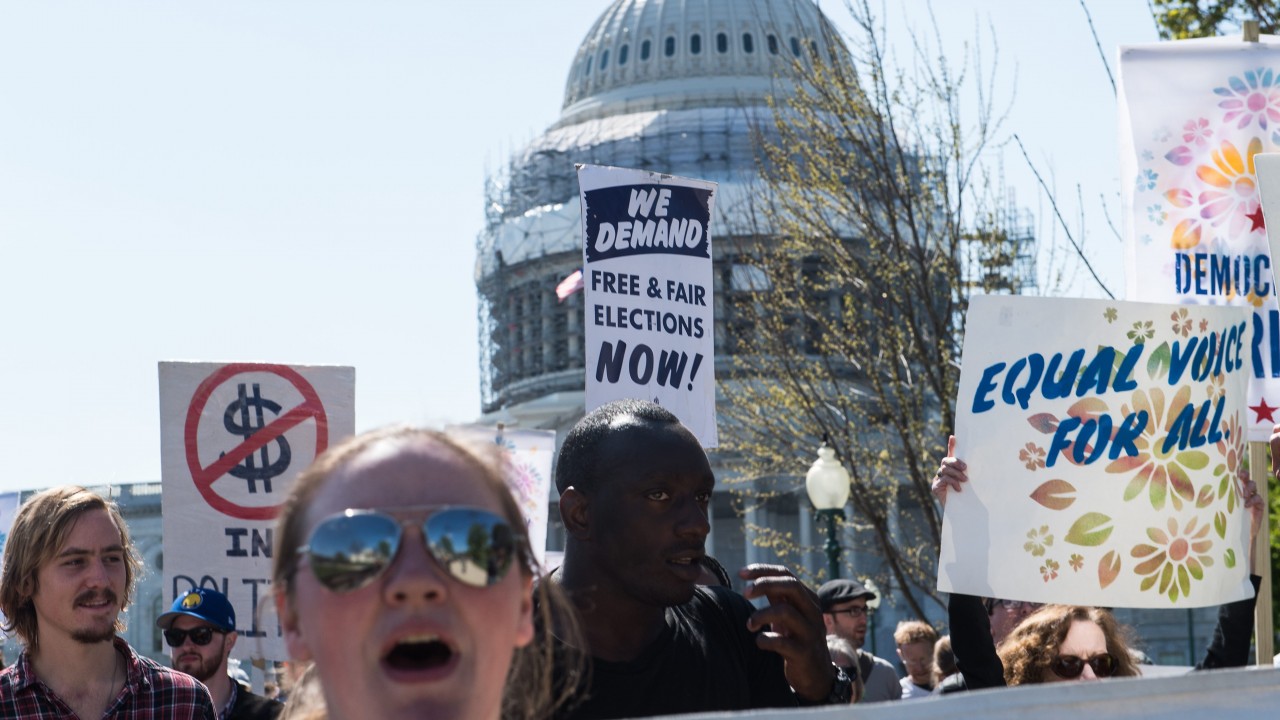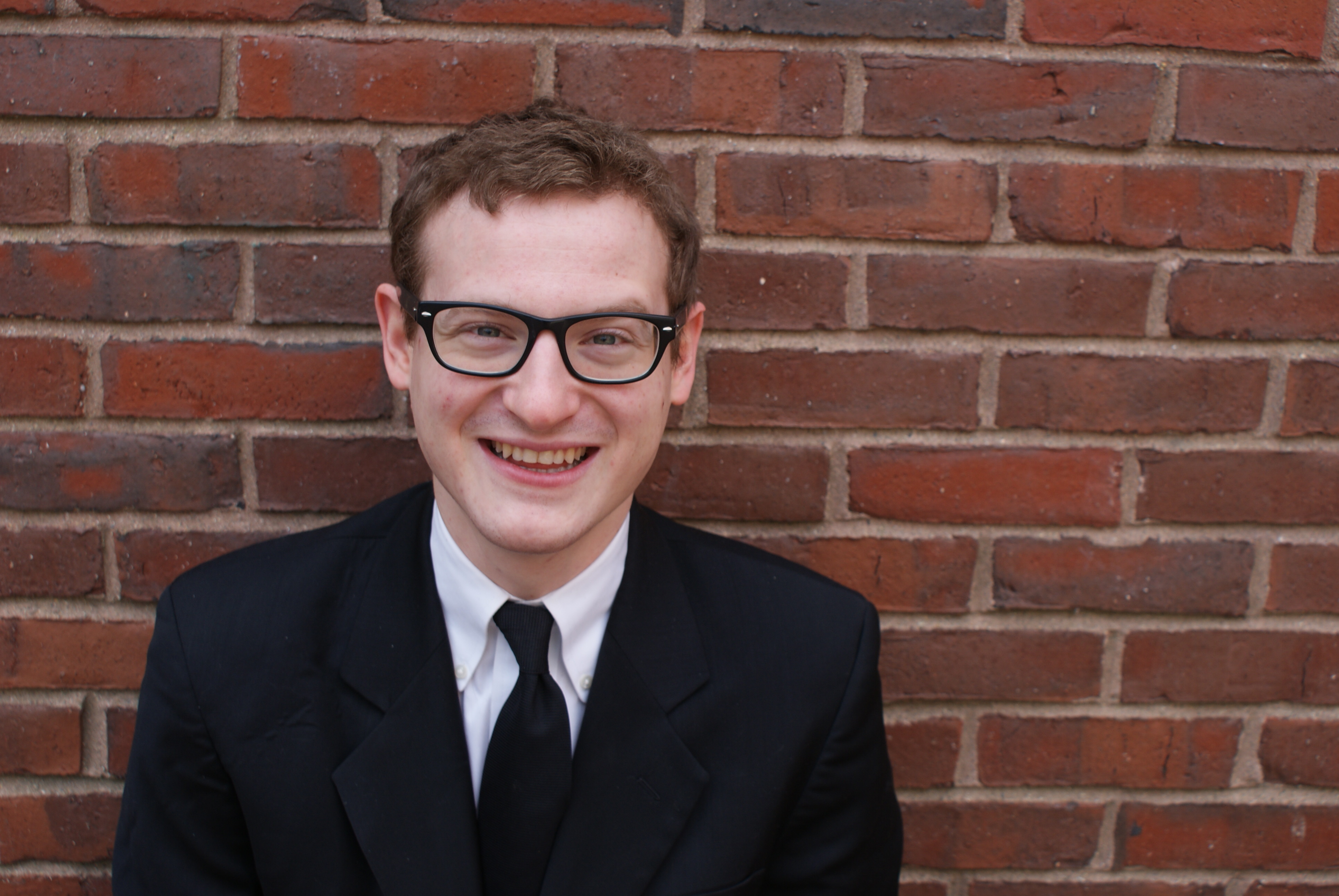
Democracy Spring activists march for a fifth day at the US Capitol. (Photo: Nicholas Kamm /AFP/Getty Images)
Demanding that Congress remove big money’s stranglehold on our democracy and protect voting rights, we walked more than 100 miles from Philadelphia to Washington, DC this spring with Democracy Spring.
The experience changed us. Our energy has never been higher. So what do we do now?
Whatever the answer is, we are determined to build on our final minutes of the march. As the Capitol dome came into view, we found ourselves among hundreds, all chanting at full throat, “Whose democracy? Our democracy!” We felt a thrill of recognition:
Our democracy.
We’d never quite experienced that feeling before. While we’ve found it deeply soul-satisfying to protest injustice and our rigged system, in that heady moment we felt something different: that we were no longer outsiders but owners. With that feeling came a deep knowing that this so-called democracy could actually become one in which we all function as owners, each with a real voice.
We felt we were fulfilling a duty to what is ours, not only to propose but to take responsibility for solutions and to insist that we have a hand in shaping those solutions.
No, we’re not dewy-eyed! We’re talking about responsibility, which can sometimes be heavy and painful. But it sure feels a lot better than powerlessness and despair. Imagine the moment we learn that a loved one needs our care to heal: Is there anything more satisfying than assuming that responsibility?
Today, in a political climate saturated with fear, hate and ugly confrontation, we all need to experience this ownership. The fight is not about taking our country back, but about moving democracy forward: to be more representative, more accountable, more visionary.
But harnessing the energy to create a solutions-based movement is difficult.
We have to unite our “siloed” issues, from racial justice to climate change, to focus on the mother of them all: our democracy deficit. It’s happening with Democracy Initiative, which brings together dozens of organizations from labor to civil rights to the environment.
We also have to let go of the idea that electing one good leader can save us.
When a coalition of young people led the charge to elect Barack Obama in 2008, many experienced a positive movement for hope and change. They believed that finally, their government would represent them. Yet just two years later, when Obama needed his supporters the most — during midterm elections when his majority in Congress was threatened — millions failed to show up at the polls.
Democracy isn’t built in one election or one protest.
The Wisconsin Democratic primary this April is a prime example. The primary ballot included a state Supreme Court race that would determine the court’s ideological balance. Because voters didn’t have a sustained, grass-roots movement actively helping them understand what was at stake, a lot of Democrats who showed up didn’t even mark their ballot for the Supreme Court position. The result? The conservative candidate won handily.
Luckily, Democracy Spring taught us a lot about what it will take. It’s not enough to make the intellectual case for reform – say, getting big money out of politics. Too many Americans simply think, “Yeah, right, and good luck with that.”
So how do we Americans snap out of our cynicism? In Democracy Spring we identified at least three sources of power that can create and fuel a transformative citizens’ movement.
- Civil Courage. The power of choosing to walk with fear (of protest and arrest, in this case). We experienced fear as exhilarating energy, rather than as a message telling us we’re on the wrong path. We believe that experiencing this shift translates into “civil courage” — heightened will to step into the unknown for a higher value. This experience leads participants to stay engaged, increasing the likelihood of future commitment.
- Social solidarity. The power of discovering deep connection with strangers sharing a higher value. Americans suffer widespread loneliness and typically have little or no opportunity for deep sharing with strangers — strangers who, based on our experience, quickly become friends when working toward a common goal. This power arises from sharing knowledge and experience — including telling personal stories and identifying with those of others. The two of us prove the point. We hardly knew each other before the march, but after spending so much time together and talking about our hopes and dreams for the democracy movement, we decided to collaborate well beyond Democracy Spring’s end date. The march also gave rise to two Facebook communities in which marchers — from veterans,to professors, to a former banker — are continuing to find strength.
- The Thrill of Democracy. The power of shifting from primarily protesting against those in power to experiencing the act of taking power — by assuming responsibility for solutions. Railing against plutocracy is great, but it’s been especially exciting for us to know the march’s specific solutions are doable and grounded in what most Americans want. More than 70 percent of Americans favor small-money, public-matching funds, according to a December 2015 poll. Another survey found that more than three quarters of Americans polled favor a constitutional amendment enabling Congress to limit corporate spending in elections.
While Facebook posts, tweets and listserv messages may help facilitate interaction, the thrill of democracy arises in face-to-face encounters — the kind we experienced on our long march full of constant chatter. Taking responsibility for solutions involves ongoing engagement and building a new culture of citizens practicing the arts of democracy — especially dialogue and deliberation.
It gains power via small groups connected nationally, sharing stories of our highest dreams and our bitterest losses. This is what movement-building requires.
It also needs innovative forms of public action that push us out of our social and ideological comfort zones and involve us with strangers.
Why not host, say, a rash of “people’s corners” (inspired by Hyde Park’s Speakers Corner) across the country, with pop-up plays about big money monopoly on politics and what we can do about it? They could include street art and public pledges by officials. (Democracy Spring’s Equal Voice for All Declaration, for example, commits signers to several “pro-democracy, anti-corruption reforms.”)
Or what about a citizens’ pledge campaign? People could earn a “democracy badge” for committing publicly, say, to converse with at least one stranger a week about getting big money out of politics and restoring voting rights or demanding that their congressional representatives pledge to support related bills.
Keeping alive the thrill of democracy for the long haul of social transformation also requires that together we continue to accomplish even bigger, potentially scarier feats we didn’t know we had in us — including mass civil disobedience that builds on the historic sit-ins involving more than 1,300 of us at the Capitol steps in April.
We welcome readers to weigh in with more ideas!
Our movement can confirm that democracy activists are not just some “oddball activists,” for all humans have, in addition to our basic physical needs, three requirements to thrive. First, we need to feel powerful (enjoy a sense of agency). Second, we need meaning beyond our own survival. Third, we need to feel connected with others.
Simply put, our rigged democracy cannot meet these essential human requirements, while Democracy Spring and the parallel mobilization, Democracy Awakening, enabled us to live all three! We came to see that the success of our movement depends on enabling more Americans to experience the thrill of democracy as we did, and work toward a culture of democracy that meets these requirements for all.
To save the democracy we thought we had, we must take our democracy to where it’s never been.





